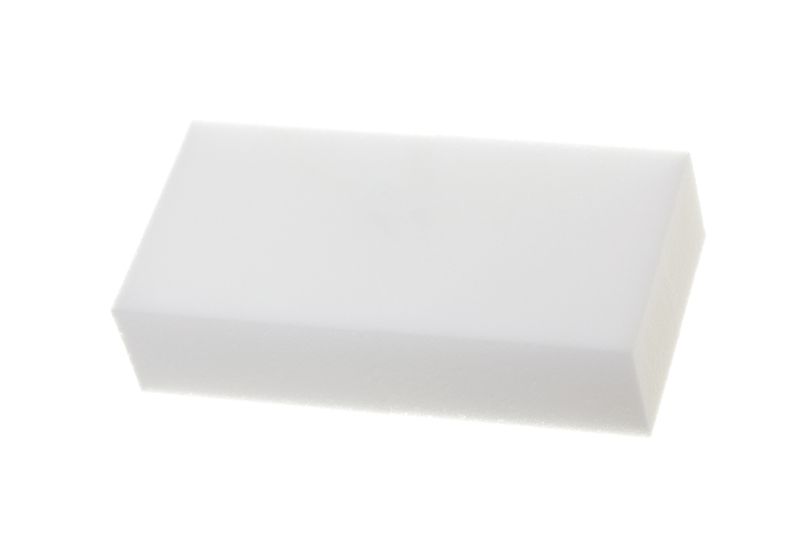Vinegar: The Bathroom Cleaning Hero
Posted on 30/08/2025
Vinegar: The Bathroom Cleaning Hero
In the world of household cleaning, few products have the renown and versatility of vinegar. This humble liquid, typically associated with cooking, has emerged as a potent cleaning agent, particularly effective in the bathroom. Whether it's grime, soap scum, or lingering odors, vinegar is a formidable ally. In this article, we will explore the myriad ways vinegar can be used to maintain a spotless bathroom, why it's so effective, and how it stands up against commercial cleaners.
The Science Behind Vinegar
Vinegar, specifically white distilled vinegar, is composed primarily of acetic acid and water. Its acidic nature is what gives vinegar its cleaning power. Acetic acid can dissolve mineral deposits, grease, grime, and even kill bacteria. Unlike many commercial cleaning products that contain harsh chemicals, vinegar is natural and non-toxic, making it safer for users and the environment.

Bathroom Surfaces and Vinegar
Tiles and Grout
Bathroom tiles, both on the floor and walls, can accumulate soap scum and grime. Grout, the material between tiles, is particularly susceptible to mold and mildew. Vinegar can effectively clean both tiles and grout. Mix a solution of equal parts water and vinegar, spray on the surfaces, let it sit for a few minutes, then scrub with a brush or sponge. The acetic acid breaks down the grime and kills mold spores, leaving your tiles and grout sparkling clean.
Showerheads
Over time, showerheads can get clogged with mineral deposits, especially in areas with hard water. To clean a showerhead, fill a plastic bag with vinegar and secure it around the showerhead with an elastic band. Let it soak overnight. The vinegar will dissolve the mineral deposits, restoring the flow of water. Rinse the showerhead with water the next morning for optimal results.
Glass and Mirrors
Vinegar is excellent for cleaning glass surfaces. For a streak-free shine, mix equal parts water and vinegar in a spray bottle. Spray on mirrors and shower doors, and wipe with a microfiber cloth. The solution will remove fingerprints, water spots, and other residues, leaving your glass surfaces gleaming.
Dealing with Common Bathroom Issues
Soap Scum
Soap scum, a combination of soap residue and mineral deposits, can be tenacious. Vinegar's acidic nature can break down the buildup effectively. To tackle soap scum, spray undiluted white vinegar on the affected areas, let it sit for 15-20 minutes, then scrub with a sponge or brush. Rinse thoroughly with water to remove any remaining residue.
Mold and Mildew
Mold and mildew thrive in the moist environment of a bathroom. Vinegar's antifungal properties make it an effective solution for these fungi. Spray undiluted white vinegar onto moldy surfaces, and let it sit for at least an hour. Scrub with a brush and rinse with water. For regular maintenance, wipe down shower walls and other damp areas with a vinegar solution to prevent mold and mildew growth.
Toilet Cleaning
Vinegar is a safe and effective toilet cleaner. Pour a cup of vinegar into the toilet bowl, let it sit for a few hours or overnight, then scrub with a toilet brush. For tough stains, sprinkle baking soda into the bowl before adding the vinegar. The combination of acetic acid and baking soda's mild abrasiveness will leave your toilet clean and fresh-smelling.
Odor Elimination
Bathrooms can harbor unpleasant odors from various sources. Vinegar's deodorizing properties can neutralize these odors effectively. Place a bowl of vinegar in the bathroom to absorb smells, or use a vinegar solution to wipe down surfaces. Adding a few drops of your favorite essential oil to the vinegar solution can provide a pleasant scent while maintaining its cleaning power.
Comparing Vinegar to Commercial Cleaners
Many commercial bathroom cleaners contain chemicals that can cause respiratory issues, skin irritation, and environmental harm. In contrast, vinegar is a natural, eco-friendly alternative. Here are some key comparisons:
- Effectiveness: Vinegar is highly effective for most cleaning tasks, rivaling the performance of many commercial products.
- Safety: Vinegar is non-toxic and safe to use around children and pets, reducing the risk of accidental poisoning or allergic reactions.
- Cost: Vinegar is inexpensive compared to many commercial cleaners, offering excellent value for money.
- Environmental Impact: Vinegar is biodegradable and does not contribute to pollution, unlike some chemical cleaners that may contain harmful ingredients.

Precautions and Tips for Using Vinegar
While vinegar is a versatile and powerful cleaner, it's essential to use it correctly to avoid damage to surfaces:
- Avoid Marble and Granite: The acidity of vinegar can etch and dull natural stone surfaces. Use a pH-neutral cleaner instead.
- Test on Small Areas: Before using vinegar on a new surface, test it on a small, inconspicuous area to ensure it doesn't cause damage or discoloration.
- Proper Ventilation: When cleaning with vinegar, especially in enclosed spaces, ensure proper ventilation to avoid inhaling strong fumes.
- Rinse Thoroughly: Always rinse surfaces with water after cleaning with vinegar to remove any residual acid.
Conclusion
Vinegar is more than just a pantry staple; it's a powerful bathroom cleaning hero. Its natural, non-toxic properties make it a safe and effective alternative to commercial cleaners. From dissolving soap scum and mineral deposits to eliminating odors, vinegar's cleaning prowess is unmatched. By incorporating vinegar into your bathroom cleaning routine, you can achieve a spotless, fresh-smelling space while reducing your environmental footprint and exposure to harsh chemicals.
Next time you face a bathroom cleaning challenge, reach for that bottle of vinegar. Armed with the knowledge in this article, you'll be well-equipped to harness the full potential of this remarkable natural cleaner. Happy cleaning!
Latest Posts
Deep Cleaning: Kitchen Edition
Suede Sofa Cleaning: Home Remedies
Pet-Friendly Carpet Maintenance Guide



